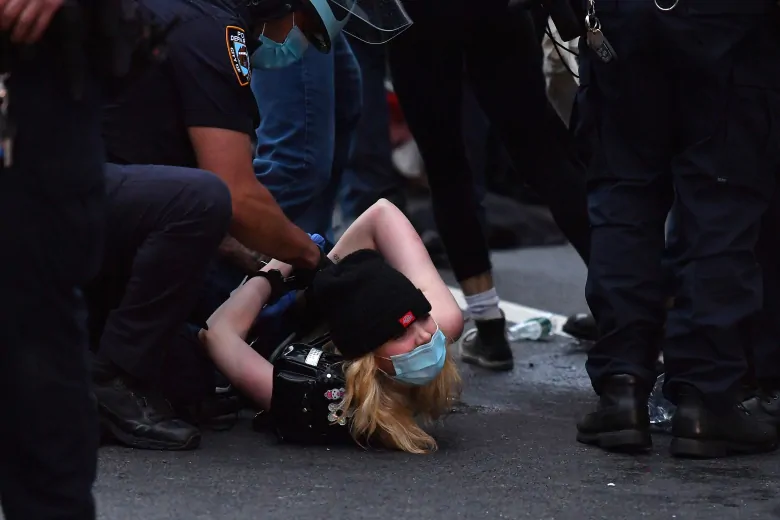The massive protests sweeping across U.S. cities following the police killing of a black man in Minnesota have sent shudders through the health community and elevated fears that the huge crowds will lead to a new surge in cases of the coronavirus.

The massive protests sweeping across U.S. cities following the police killing of a black man in Minnesota have sent shudders through the health community and elevated fears that the huge crowds will lead to a new surge in cases of the coronavirus.
Some leaders appealing for calm in places where crowds smashed storefronts and destroyed police cars in recent nights have been handing out masks and warning demonstrators they were putting themselves at risk.
Minnesota’s governor said Saturday that too many protesters weren’t socially distancing or wearing masks after heeding the call earlier in the week.
But many seemed undeterred.
“It’s not OK that in the middle of a pandemic we have to be out here risking our lives,” Spence Ingram said Friday after marching with other protesters to the state capitol in Atlanta. “But I have to protest for my life and fight for my life all the time.”
Ingram, 25, who was wearing a mask, said she has asthma and was worried about contracting the virus. But she said as a black woman, she always felt that her life was under threat from police and she needed to protest that.
WATCH| Protests over police killing of George Floyd hit Washington and Atlanta
Demonstrations continued for another night in U.S. cities following killing of a black man by police in Minneapolis. 0:57
Experts fear silent carriers of virus
The demonstrations over the killing of George Floyd, a black man who died after a white Minneapolis officer pressed a knee into his neck, are coming at a time when many cities were beginning to relax stay-at-home orders.
That’s especially worrisome for health experts who fear that silent carriers of the virus who have no symptoms could unwittingly infect others at gatherings with people packed cheek to jowl and cheering and jeering without masks.
“Whether they’re fired up or not that doesn’t prevent them from getting the virus,” said Bradley Pollock, chair of the Department of Public Health Sciences at the University of California, Davis.

In Toronto, where thousands of people protested on downtown streets against anti-black and anti-Indigenous racism, many of the protesters wore face masks and Mayor John Tory encouraged the crowds to practise physical distancing.
Even for the many protesters who have been wearing masks, those don’t guarantee protection from

